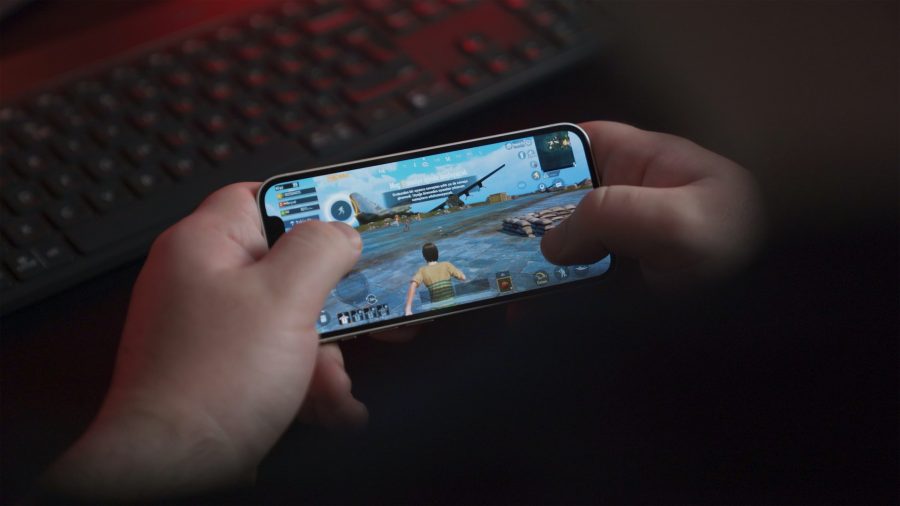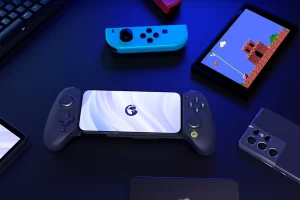Mobile gaming has evolved far beyond simple time-wasters to become a legitimate competitive platform with professional tournaments, substantial prize pools, and dedicated esports organizations.
What begins as casual gameplay during a commute or lunch break can develop into a serious hobby or even a professional pursuit for those willing to invest the time and effort.
The journey from casual to competitive play involves specific skills, practice regimens, and equipment considerations that can dramatically improve your performance. With the right approach, you can transform your casual gaming sessions into competitive gameplay that challenges and rewards your developing skills.
Optimize Your Gaming Environment
Creating an ideal gaming setup is the foundation of competitive mobile gaming. Consider your physical comfort during extended play sessions, as proper ergonomics prevent strain and allow for better performance over time.
Many serious mobile gamers use specialized grips or controllers that attach to their devices for improved control and comfort.
Protecting your gaming device is equally important. Companies like Casely offer cases designed to help protect your phone, which is especially important during animated gameplay moments.
Master the Fundamentals Through Deliberate Practice
Competitive gaming requires moving beyond casual play habits to implement structured practice routines. Rather than simply playing games, break down your practice into specific skill components that need improvement.
This targeted approach, known as deliberate practice, produces faster skill development than general gameplay.
Create practice schedules that focus on different aspects of gameplay—perhaps aiming accuracy one day, movement techniques another, and strategic decision-making on the third.
Record your practice sessions when possible to review your performance objectively and identify patterns or weaknesses that aren’t apparent during play.
Most competitive games have training modes or custom game options that allow you to practice specific scenarios repeatedly. Utilize these tools to create high-repetition practice for mechanical skills like aiming, building, or executing combos without the pressure of actual matches.
Study the Meta and Strategic Frameworks
Competitive gaming communities develop optimal strategies, character selections, and gameplay approaches collectively known as “the meta.” Staying current with these developments through forums, YouTube channels, and Discord communities gives you strategic advantages that casual players miss.
Develop a systematic approach to analyzing your losses, focusing on identifying decision points where different choices might have changed outcomes.
This reflective practice accelerates strategic development far more effectively than simply playing more games without analysis.
Upgrade Your Technical Skills
Competitive mobile gaming requires technical skills beyond those needed for casual play. Practice advanced movement techniques specific to your game until they become muscle memory that doesn’t require conscious thought during matches.
Learn to play with higher sensitivity settings gradually, as this generally allows for faster reactions and more precise control once mastered.
However, find the balance that works for your play style rather than copying professional settings that might not suit your specific strengths.
Build Mental Fortitude and Consistency
Mental resilience distinguishes competitive players from casual gamers. Develop pre-game routines that prepare your mind for focused play, whether that involves physical warm-ups, a brief meditation, or a review of strategic objectives.
These rituals signal to your brain that it’s time for concentrated effort rather than casual entertainment.
Manage tilt—the emotional frustration that leads to deteriorating performance—by recognizing early warning signs in yourself.

Have specific strategies ready for these moments, such as taking deep breaths, refocusing on process rather than outcomes, or taking short breaks between matches.
The Competitive Mindset
The transformation from casual to competitive gamer ultimately happens in your approach rather than just your skill level. Embracing challenges rather than avoiding them, finding satisfaction in the improvement process rather than just victories, and maintaining curiosity about the game’s evolving strategies are hallmarks of players who continue to grow.
Remember that even professional gamers began as casual players who simply decided to take their improvement seriously.
The competitive journey involves numerous plateaus and breakthroughs, with each cycle of challenge and mastery building not just gaming skills but also the resilience and learning capacity that benefits many areas of life beyond the screen.






 Your total news and information resource for all things Science, Technology, Engineering / Mathematics, Art, and Medicine / Health.
Your total news and information resource for all things Science, Technology, Engineering / Mathematics, Art, and Medicine / Health.
Leave a Comment